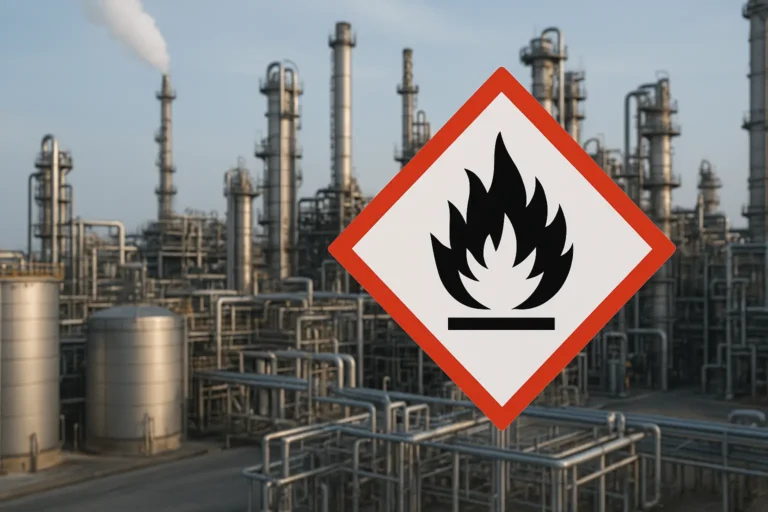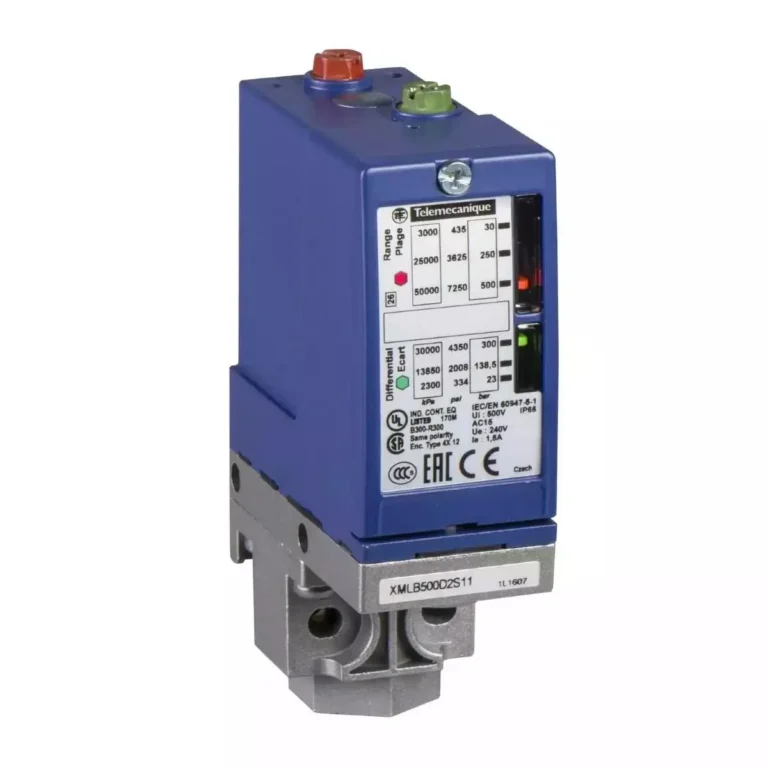What is the Upper Explosion Limit (UEL)? Its Importance in Industrial Safety
In industrial safety, minimizing risks is not only about equipment quality but also about understanding the physical and chemical properties...
Devamını Oku

Communication infrastructure forms the foundation of modern digital systems, enabling the seamless and secure transfer of information across various platforms. As businesses and industries increasingly rely on digital solutions, the demand for strong and reliable communications and communication infrastructure continues to grow. Whether it’s for internal data flow, operational control, or external communications, a well-designed infrastructure ensures stability, performance, and scalability.
Today’s digital ecosystems require more than just basic connectivity. High-speed data transmission, secure information flow, and system integration have become critical success factors. This is especially true in industrial environments, where automation, remote monitoring, and real-time control systems depend on robust infrastructure. Adatech, with its expertise in engineering and technology, offers tailored solutions that support operational efficiency and digital transformation. Building a future-ready communication infrastructure means adopting scalable technologies, expert planning, and a strategic approach — all of which are at the core of Adatech’s engineering vision.
What is communication infrastructure? It refers to the complete system of hardware, software, and network components that allow data, voice, and video signals to be transmitted between devices, systems, or locations. This includes routers, switches, servers, cabling, wireless access points, and the protocols that govern their interaction. In both industrial and corporate environments, communication infrastructure plays a central role in maintaining connectivity, ensuring operational continuity, and supporting the exchange of real-time information.
The scope of communication infrastructure has expanded with digital transformation. It’s no longer just about basic phone or internet lines — it’s now the backbone for IoT, automation, cloud computing, and advanced data analytics. An effective infrastructure reduces downtime, boosts productivity, and provides a secure and scalable environment for growth. At Adatech, every communication infrastructure project is approached with precision, ensuring it aligns with the client’s current needs and future technology roadmap. A robust infrastructure is the foundation for innovation and business resilience.
The core components of a communication infrastructure determine its performance, reliability, and scalability. These elements typically include physical transmission media (such as copper cables, coaxial lines, or fiber optics), network hardware (like routers, switches, and servers), and software systems that control and monitor data flow. In addition, signal converters, repeaters, power supply systems, and structured cabling are essential for maintaining signal quality and consistent connectivity across a facility or network.
An efficient communications and communication infrastructure also includes advanced elements like protocol layers, data centers, and edge computing nodes to handle large volumes of real-time data. Security mechanisms—both physical and digital—are integrated to protect the flow of sensitive information. At Adatech, these elements are carefully assessed during the planning phase to ensure every communication infrastructure is built for durability, performance, and future integration. Each project is tailored to deliver seamless and secure operations across diverse industrial environments.
Communication infrastructure comes in various forms, each tailored to different environments, technical requirements, and scalability needs. The most common types include wired communication systems, wireless networks, fiber optic infrastructures, and satellite-based solutions. These types vary in speed, reliability, cost, and coverage area. For example, wired systems often offer stable and interference-free performance, while wireless systems provide flexibility and mobility for dynamic work environments.
Each type of communications and communication infrastructure has its strengths. Fiber optics, for instance, enable high-speed and long-distance transmission with minimal signal loss. Wireless systems are quick to deploy and cost-effective for temporary setups. Meanwhile, satellite communication is ideal for remote or hard-to-reach locations. At Adatech, a comprehensive analysis is performed to determine the most effective combination of these technologies. By designing hybrid infrastructures that leverage the strengths of each type, Adatech delivers communication systems that are not only efficient but also tailored to future digital transformation goals.
Wired communication infrastructure uses physical cabling—such as copper wires or fiber optic cables—to transmit data between systems. This type of infrastructure is known for its high reliability, consistent speed, and resistance to external interference. It’s widely used in industrial settings where uninterrupted data flow is critical to automation and control systems. As part of a robust communication infrastructure, wired systems provide secure and stable connections, making them ideal for facilities with high data transmission demands. Adatech ensures that wired systems are designed for durability, efficiency, and easy integration into broader operational networks.
Wireless communication infrastructure eliminates the need for physical cables by using radio waves or infrared signals to transmit data. Technologies such as Wi-Fi, Bluetooth, and LTE fall under this category. Wireless systems offer unmatched flexibility, especially in environments where mobility or rapid deployment is essential. As a part of a comprehensive communication infrastructure, wireless solutions enable seamless device connectivity across broad areas. Adatech designs wireless systems with signal strength optimization and interference management in mind, ensuring reliable performance even in complex industrial settings.
Fiber optic communication infrastructure uses light signals transmitted through glass or plastic fibers to carry data at extremely high speeds and over long distances. This technology is highly resistant to electromagnetic interference and delivers unmatched bandwidth, making it ideal for large-scale operations and data-intensive environments. As a core component of modern communication infrastructure, fiber optics offer scalability and reliability. Adatech integrates fiber optic solutions into projects requiring robust, high-performance networks that support automation, remote monitoring, and real-time analytics.
Satellite based communication infrastructure provides connectivity in remote or underserved areas where traditional wired or wireless systems are not feasible. It operates through geostationary or low-orbit satellites to transmit data over vast distances. This type of communication infrastructure is essential for industries operating in isolated locations, such as offshore facilities or rural environments. Adatech leverages satellite solutions when global coverage and uninterrupted access are critical, ensuring communication continuity even in the most challenging terrains.
In industrial environments, communication infrastructure plays a vital role in maintaining seamless operations, enabling automation, and supporting safety systems. From the factory floor to centralized control rooms, this infrastructure connects machines, sensors, controllers, and operators, allowing real-time data exchange. Efficient communication systems are critical for monitoring production lines, managing equipment status, and triggering alerts when abnormalities occur. These functions improve operational accuracy, reduce downtime, and increase productivity across the board.
A strong communications and communication infrastructure also supports integration with advanced technologies such as SCADA systems, IoT networks, and cloud-based platforms. It enables predictive maintenance by analyzing equipment performance and helps manage energy consumption effectively. Adatech provides industry-specific communication solutions designed for harsh environments, ensuring durability and reliability. By building high-performance infrastructures, Adatech empowers facilities to meet Industry 4.0 standards and embrace digital transformation with confidence.
Designing and deploying a communication infrastructure in an industrial setting requires careful planning and a deep understanding of the operational environment. Factors such as facility size, layout complexity, types of equipment, and data transmission requirements must be analyzed in detail. Environmental conditions—such as temperature extremes, dust, moisture, or electromagnetic interference—also impact infrastructure design choices. Selecting suitable components and technologies that can withstand these conditions ensures long-term reliability and safety.
Beyond hardware, scalability and integration capabilities are key. The infrastructure should be able to support future expansions, new technologies, and system upgrades. Cybersecurity measures must be implemented to protect sensitive operational data. Moreover, downtime risks can be mitigated with backup systems and redundant pathways. Adatech takes all of these considerations into account, offering customized communications and communication infrastructure solutions that align with each facility’s technical needs, safety standards, and long-term business goals.
Adatech delivers tailored communication infrastructure solutions designed to meet the unique needs of industrial operations. With deep expertise in engineering and system integration, Adatech offers end-to-end services covering system design, installation, commissioning, and support. Their solutions include wired and wireless network deployment, fiber optic integration, and structured cabling systems—all engineered to ensure reliable data flow, system uptime, and compliance with industry standards.
Each project begins with a detailed site analysis to determine environmental conditions, operational needs, and future scalability. Adatech’s engineers then develop communication infrastructures that seamlessly integrate with automation, monitoring, and control systems. These communications and communication infrastructure solutions enhance data visibility, optimize decision-making, and support digital transformation goals. By combining innovative technology with industry know-how, Adatech builds infrastructures that are not only robust and efficient but also ready for the evolving demands of modern industry.

In industrial safety, minimizing risks is not only about equipment quality but also about understanding the physical and chemical properties...
Devamını Oku
A pressure switch is an electromechanical device used to monitor fluid or gas pressure and trigger an action—typically opening or...
Devamını Oku
Artificial Intelligence (AI) and Machine Learning (ML) are set to revolutionize the future of industrial automation, enabling smarter, more adaptive...
Devamını OkuPROTECTION OF PERSONAL DATA
WEBSITE COOKIE POLICY
Your personal data; It is one of the leading principles of our Organization to protect the privacy of visitors to the website (www.adatech.com.tr) operated by ADATECH as the data controller. This Cookie Usage Policy (“Policy”) explains to all our website visitors and users which types of cookies are used and under what conditions.
Cookies are small text files stored on your device or network server by websites you visit on your computer or mobile device.
They are generally used to provide you with a personalized experience during your use of the website you visit, to improve the services offered and to improve your experience, and may contribute to ease of use while browsing a website. If you do not prefer the use of Cookies, you can delete or block Cookies in your browser settings. However, we would like to remind you that this may affect your use of our website. Unless you change your cookie settings in your browser, we will assume that you accept the use of cookies on this website.
1. WHAT KIND OF DATA IS PROCESSED IN COOKIES?
Cookies on websites, depending on their type, collect data about your browsing and usage preferences on the device you visit the site. This data includes information about the pages you access, the services and products you review, your preferred language option and other preferences.
2. WHAT is a solution and what are its intended uses?
Cookies are small text files that are stored on your device or network server through browsers by websites you visit. These small text files, which contain your preferred language and other settings on the site, help us remember your preferences the next time you visit the site and make improvements to our services to improve your experience on the site. Thus, you can have a better and personalized usage experience on your next visit.
The main purposes of using cookies on our Website are listed below:
3.TYPES OF COOKIES USED ON OUR WEBSITE
3.1. Oturum Çerezleri
Session cookies ensure that the website functions properly during your visit. They are used for purposes such as ensuring the security and continuity of our sites and you during your visit. Session cookies are temporary cookies, they are deleted when you close your browser and come to our site again, they are not permanent.
3.2. Persistent Cookies
These types of cookies are used to remember your preferences and are stored on your device via browsers. Persistent cookies remain stored even after you close your browser or restart your computer from which you visited our site. These cookies are kept in subfolders of your browser until they are deleted through your browser’s settings.
Some types of persistent cookies may be used to provide you with special suggestions, taking into account issues such as your purpose of using the Website.
Thanks to persistent cookies, if you visit our Website again with the same device, it is checked whether there is a cookie created by our Website on your device and if there is, it is understood that you have visited the site before and the content to be transmitted to you is determined accordingly and thus a better service is provided to you.
3.3. Mandatory/Technical Cookies
These cookies are essential for the website you visit to function properly. The purpose of such cookies is to provide necessary services by enabling the website to function. For example, it allows you to access secure parts of the website, to use its features, to navigate on it.
3.4. Analytical Cookies
They collect information about the way the website is used, the frequency and number of visits, and show how visitors navigate to the site. The purpose of using such cookies is to increase performance by improving the way the site functions and to determine the general trend direction. They do not contain data that could enable the identification of visitors. For example, they show the number of error messages displayed or the most visited pages.
3.5. Functional/Functional Cookies
It saves the choices made by the visitor within the site and remembers them on the next visit. The purpose of such cookies is to provide ease of use to visitors. For example, it prevents the site user from re-entering the user password on each page they visit.
3.6. Targeting/Advertising Cookies
They enable the measurement of the effectiveness of advertisements served to visitors and the calculation of the number of times the advertisements are viewed. The purpose of such cookies is to serve ads customized to the interests of visitors.
Likewise, they enable the detection of visitors’ interests specific to their browsing and the presentation of appropriate content. For example, it prevents the advertisement shown to the visitor from being shown again in a short time.
4. HOW TO MANAGE COOKIE PREFERENCES?
To change your preferences regarding the use of cookies or to block or delete cookies, simply change your browser settings.
Many browsers give you the option to accept or reject cookies, accept only certain types of cookies, or be alerted by the browser when a website requests to store cookies on your device so that you can control cookies.
It is also possible to delete cookies previously saved in your browser.
If you disable or refuse cookies, you may need to set some preferences manually, some features and services on the website may not function properly as we will not be able to recognize and associate your account. You can change the settings of your browser by clicking on the relevant link from the table below.
5. ENFORCEMENT OF WEBSITE PRIVACY POLICY
Website Privacy Policy …./…./…./…. . is dated. In case all or certain articles of the Policy are renewed, the effective date of the Policy will be updated. The Privacy Policy is published on the website of the Authority (www.adatech.com.tr) and made available to the relevant persons upon the request of the personal data owners.
ADATECH
Address: Esenyalı Neighborhood Yanyol Street Varyap Plaza No:61-148 Pendik / Istanbul
Telephone: +90 (216 ) 514 80 69
E-mail: [email protected]
Web Address: www.adatech.com.tr